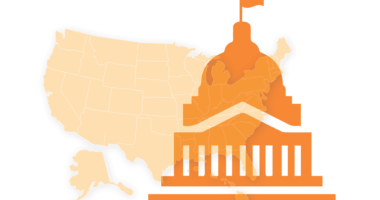Nation’s Report Card Shows Troubling Decline of Students’ Knowledge About Civics and History
Statement from Allison Socol on decline in U.S. history and civics proficiency among students
WASHINGTON – Allison Socol, Ph.D., vice president for P–12 policy, practice, and research at The Education Trust, released the following statement regarding today’s results of the National Assessment of Educational Progress, known as the Nation’s Report Card, on U.S. history and civics among the nation’s eighth grade students. The results show that scores fell for the first time since that particular assessment began in 2010 and show a 5-point decline in average scores in U.S. history.
“The pandemic hampered growth across all grades and subjects, especially for Black and Latino students, English learners, and students from low-income backgrounds. It is concerning, but not surprising, that our country is seeing a decline in scores in civics and U.S. history.
“Declines in history and civics scores are related to disrupted learning during the pandemic, but we shouldn’t discount the detrimental impact of individual state policies being enacted that erase the experiences of Black, Latino, and other communities. Across the nation, the accurate and honest teaching of history is under attack. To date, lawmakers in at least 44 states have either passed bills or are considering legislation to limit lessons about race and bias from being taught in the classroom. We should be embracing our history, not be running from it, and all students should be able to see themselves in the shared American history taught in U.S. schools.
“As the nation’s leaders look to meet students’ academic, social, and emotional needs, continued federal and state targeted investments are crucial for students — especially students of color and students from low-income backgrounds, who are more likely to live in communities most impacted by the pandemic and who have been long underserved by our nation’s schools. Fortunately, there is plenty of data that shows what works to advance equity: empowering and rigorous content; targeted interventions like intensive tutoring; improved student, family, and community engagement; increased access to safe and equitable learning environments; access to healthy foods, and strong relationships with educators. Now is the time to activate these resources and supports. Students and the nation’s future can’t afford to wait.”
###



